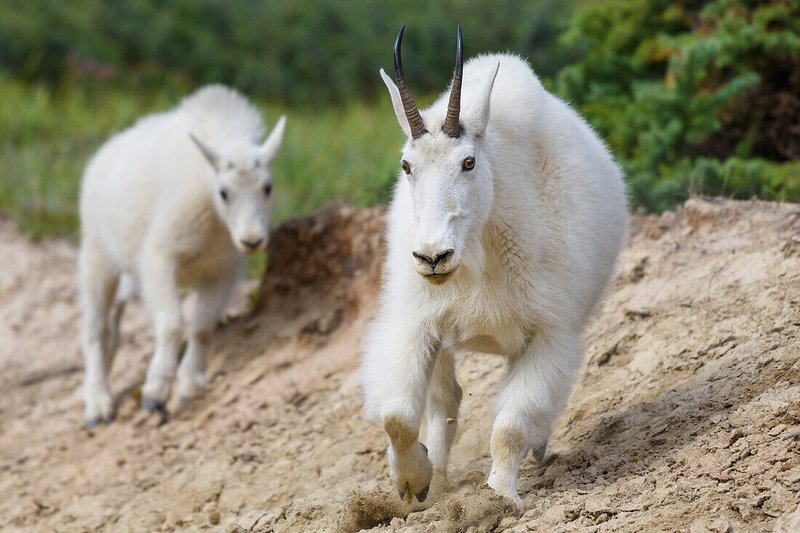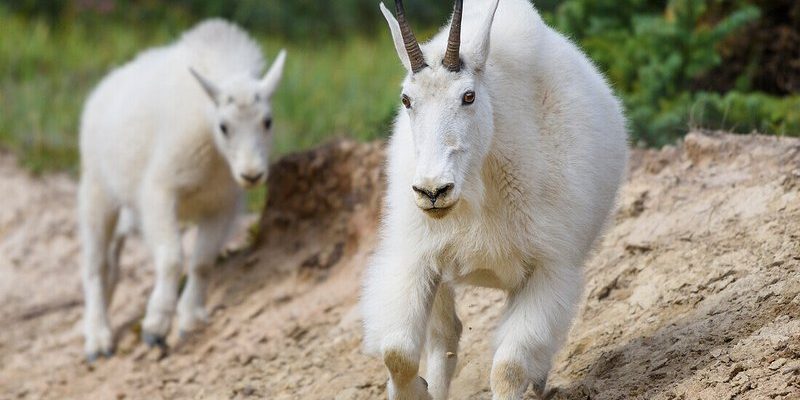
Alpine goats are known for their strength, adaptability, and friendly nature. Originally hailing from the French Alps, these goats have a robust build, making them ideal for a variety of environments. They’re often kicked around as work animals in addition to being beloved pets. But before jumping in feet first, it’s worth considering their specific needs and your own lifestyle. Here’s what you need to know.
Understanding the Alpine Goat: A Quick Overview
Alpine goats are medium to large-sized animals with a wide range of coat colors, including black, brown, and gray. They have upright ears and a strong body, making them look quite regal. These goats are known for their excellent milk production, which is one of the main reasons farmers love them. If you’re looking for a dairy goat, the Alpine is a fantastic choice—providing rich, creamy milk perfect for cheese and yogurt.
But they’re not just good for milking; they’re also quite friendly! Their gentle disposition makes them suitable for families. Wouldn’t it be fun to have a playful goat running around, greeting you every morning? However, this friendly nature does come with a need for socialization. Goats are herd animals, which means they thrive with companionship—either from other goats or pets.
Benefits of Raising Alpine Goats
If you’re weighing the decision to raise Alpine goats, consider some of the key benefits:
- Versatile Milk Producers: Alpine goats produce a good quantity of milk with high butterfat content, making it ideal for cheese-making.
- Friendly Temperament: They’re typically very social and affectionate, making them great companions.
- Low Maintenance: Compared to some other breeds, Alpines are relatively easy to care for. They adapt well to various climates and don’t require intensive grooming.
Their adaptability is another big plus. Whether you live on a sprawling farm or a smaller homestead, Alpine goats can fit in. Just ensure you have enough space for them to roam and play. Plus, their playful nature means they’ll entertain you with their antics while also helping you manage overgrown vegetation.
Space and Environment Requirements
Thinking about space? Well, Alpine goats need room to roam and graze. Ideally, provide at least 200 square feet per goat. This gives them the freedom to explore, play, and frolic, which is crucial for their physical and mental health.
Here’s the thing: if you’re considering keeping them in a small yard, think again. They love to climb and jump, and they’ll need access to a secure outdoor area to satisfy that instinct. You might want to invest in sturdy fencing since these goats are notorious escape artists!
Additionally, access to shelter is essential. Goats should have a clean, dry place to rest, especially in harsh weather. A simple barn or shed can work, provided it’s well-ventilated and free of drafts.
Dietary Needs of Alpine Goats
Feeding your Alpine goats the right diet is vital for their health and happiness. Primarily, they should eat a balanced diet consisting of:
- Hay: Quality hay should make up a large portion of their diet, providing the fiber they need for digestion.
- Pellets: Commercial goat feed pellets can provide essential vitamins and minerals.
- Fresh Vegetables: Consider giving them treats like carrots or leafy greens.
Just like us humans, goats can get picky! They love variety, so mixing up their diet can keep them interested and healthy. It’s important to avoid feeding them harmful plants, such as nightshades or certain houseplants, as these can be toxic.
Health Considerations for Alpine Goats
Like all animals, Alpine goats need routine health care. Regular check-ups by a vet who specializes in livestock is key. They can help you with vaccinations, parasite control, and dental care. You might be wondering, “How often do they need to see a vet?” Generally, at least once a year for a check-up, but more often if you notice any health issues.
Additionally, foot care is essential. Their hooves can get overgrown, especially if they spend a lot of time on soft ground. You’ll need to trim their hooves every few months to prevent discomfort and mobility issues.
And don’t forget about their weight! Keeping your goats at a healthy weight will help prevent health problems down the line. Regular exercise, combined with a balanced diet, is the best way to ensure this.
Alpine Goats as Pets vs. Livestock
Now, let’s talk about the difference between having Alpine goats as pets versus livestock. If you’re leaning towards pets, be prepared for interaction. These goats thrive on companionship and love to be part of family life. They can even learn tricks and respond to their names, making for a fun and engaging pet experience.
On the flip side, raising Alpine goats for livestock means more responsibility. You’ll need to keep a consistent routine for milking and ensure that their dietary needs are met for optimal milk production. You might also want to consider if you have the time and resources to manage a more extensive herd.
Deciding between the two often comes down to how much time and effort you’re willing to invest. If you’re looking for a relaxing pet that can provide some farm benefits, they’re great pets. But if you’re looking to start a dairy operation, Alpines can be your workhorses with the right setup.
Final Thoughts: Are Alpine Goats Right for You?
In the end, whether Alpine goats are the right choice for your farm or as pets depends on your lifestyle and goals. They bring joy, companionship, and productivity to your life, but they also require commitment and care. If you’re ready for the responsibility, you’ll likely find that these gentle creatures become beloved members of your household.
So, take a moment to think about your space, your time, and your readiness for goat ownership. If it all checks out, then preparing your farm for some playful Alpine goats could be one of the best decisions you make!

